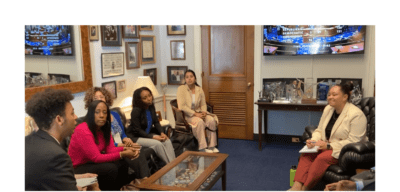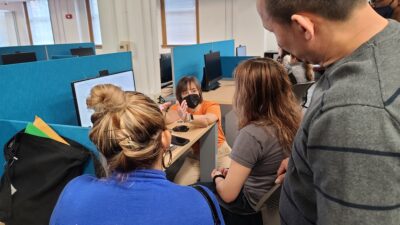
|
|
myFutureNC — a statewide nonprofit and collaborative working to increase job skills and college attainment across the state — is calling on all graduating high school seniors, their parents, and adult learners to take action now and not leave any money for college on the table by quickly completing the Free Application for Federal Student Aid (FAFSA), according to a press release.
“The time is now,” said Cecilia Holden, CEO and president of myFutureNC.
Sign up for the EdWeekly, a Friday roundup of the most important education news of the week.
Why students need to complete the FAFSA
Completing the FAFSA will allow eligible North Carolina residents to qualify for the state’s new Next NC Scholarship, which combines the Federal Pell Grant and state need-based grants into one award — at least $3,000 per year to attend any of the state’s 58 community colleges or at least $5,000 per year to attend any UNC System institution. These are not loans, but rather scholarship dollars that do not have to be paid back, said the press release.
In addition, completing the FAFSA also qualifies interested students for other need-based grants to attend one of North Carolina’s 36 Independent Colleges and Universities.
FAFSA Week of Action
Major delays and glitches in the new FAFSA have resulted in significant declines in completion rates, which are down about 25% compared to this same time last year for North Carolina’s graduating high school seniors, said the press release.
Despite the tough rollout, it is in students’ best interest to complete the FAFSA.
The U.S. Department of Education and the White House called on partners nationwide — like myFutureNC — to raise awareness of the need to complete the FAFSA throughout this week, April 15-19, which is being called the National FAFSA Week of Action.
High school counselors, principals, superintendents, afterschool programs, parent groups, nonprofit organizations, and other local and state organizations are coming together to help encourage high school seniors to submit the FAFSA.
Follow the National FAFSA Week of Action on social media with #FAFSAFastbreak.
Here are ways counselors, school and district leaders, nonprofits, philanthropists, and elected officials can get involved:
‘An absolute game changer’
“Thanks to the General Assembly’s leadership and support,” Holden said the new NextNC Scholarship “can truly change lives, better prepare students for their careers, and help us meet the demands of our future workforce.”
“But we’re at great risk of missing this opportunity,” she said, “if we can’t collectively get more North Carolinians to finish the FAFSA.”
According to the latest federal census data, the press release said, the median annual household income in North Carolina is $66,168. That means students and adults in more than half of all households in the state could fully qualify for the Next NC Scholarship.
“Access to these funds all start with completing the FAFSA, which makes this an absolute game changer in helping make education beyond high school affordable for thousands of more students and adult learners,” said Holden.
Recommended reading




